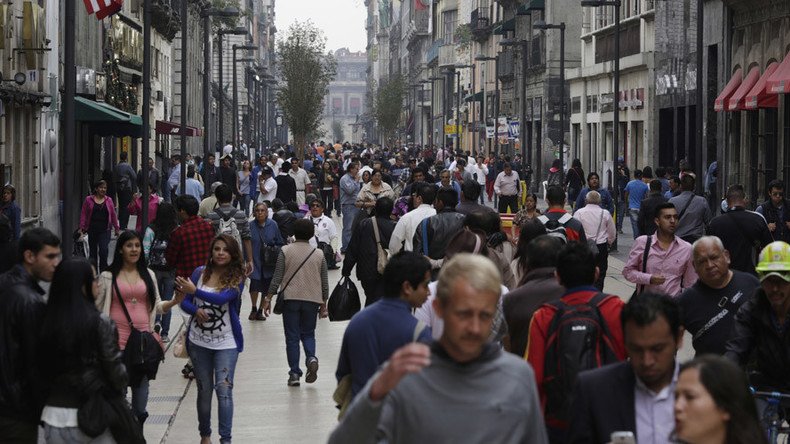In land of the blind, the one-eyed man needs a telescope

Bombing – and more specifically terrorism – is back in the headlines. This time it is Brussels. It hardly ever goes away. It’s like someone put it there.
But it wasn’t always like this. The threat used to be called the Soviet Union. But that went away. And then a new threat came along, just in time to fill the void. The bogeyman business didn’t miss a beat.
Terrorism as a brand got underway with 9/11. But there were some pre-campaign teasers: the first Twin Tower attack, and the Murrah building, for example. Since 9/11 things stepped up with highlights including 7/7, Madrid, Paris and now Brussels.
As a result, the world is being made more draconian. A clampdown is evident everywhere, and we – the taxpaying sheep who are being fleeced to fit the bill – are being transported by degrees from the green field where things were generally pretty and hopeful and we felt we had rights to a new, nasty field coated with asphalt, and hedged about with razor-blade wire, sentries and CCTV.
@Independent
— حمد عبدالعزيز الحميد (@Hamad_saudi) March 26, 2016
Saudi people are sharing this cartoon asking where the West's sympathy was for them! pic.twitter.com/4yNXkKRzkM
And the justification for this is always the same: terrorism. So who benefits?
Who benefits is anyone in favor of big government, standardization of factors of production, and worldwide conformity; in short: anyone invested in a one-world tyranny. And the people with the motive just so happen to be the same as those with the means to ensure that events lead to such an outcome: the very rich and powerful.
I’m not going to try to convince you of my reasoning. The internet exists. If you have an index finger and eyeballs and still haven’t done due diligence on such topics, there’s no hope for you. Just go back to Netflix and order a pizza.
The widening gulf
What I want to look at more specifically is the gulf between those who discern an undisclosed pattern behind the roll-out of world events, and those who come from a position predicated on haphazard coincidence and official explanations.
People split into two main factions under stress. The first – the majority – conforms to the requests of authority. It feels that the prevalent view must be the correct one, and it looks to the strong figure of state or mullah or dictator to tell it what is to be done. A smaller group is guided by an inner compass; it has misgivings about the prevalent view. And a much smaller subset of this smaller group acts on what it knows or feels.
#BrusselsAttacks#تفجيرات_بروكسلpic.twitter.com/Bc1sSBXodQ
— عبدالله بن جابر (@jabertoon) March 23, 2016
What is happening is that, as stresses on the human psyche increase as we are transitioned from one reality to another, society is being split along a single fracture line. One the one hand are those who tend, under stress, to go with the official orthodoxy: vaccines, inclusionism, feminism, rigid historical narratives, terrorist bogeymen, etc. On the other are those who tend, under stress, to smell a rat and look for answers in places other than mainstream media and sanctioned education.
And as the pressure on the psychological system builds up with increasing stresses, these two groups – the orthodox and the unorthodox – are becoming polarized, and to such an extent it is hard for them to understand each other.
The first group, then, we are calling orthodox. These are those people who – more often than not – need more to have a sense of being normal and belonging to a larger group. It all works well for them as long as there is no major tectonic shift (the sudden collapse of the Soviet Union, for example, handed such people their heads on a plate). They come from all walks of life but are particularly visible in the so-called professions – positions which are vulnerable to criticism and thus require a high level of conformity.
Such people like to attack those who diverge from the tracks along which their narrative runs by means of name-calling (the use of ‘Nazi’ is a particular favorite). The irony is, obviously, that had they themselves lived at the time of the Third Reich, it is they who would have been card-carrying National Socialists – given that such was the orthodoxy of the day – whereas the objects of their attacks are less likely to have been so; they are unorthodox now, they would probably have been unorthodox then.
The unorthodox know something is wrong, and they don’t follow the party line. Obviously, this is a broad church and includes more variety of opinion than one can shake a stick at. But just as I have simple rule of thumb for establishing whether a country is third-world or not (it’s any place where you have to offer taxi drivers a tip to drive more slowly), so I have a simple rule of thumb for establishing whether what you think belongs to the unorthodox category: if you have to check yourself before speaking for fear that someone might be ‘offended’.
Here, I don’t mean offended in the old fashioned sense (I say something actually offensive and you respond); I mean it in the new sense: I say anything at all which hasn’t been vetted by the gatekeepers of acceptable thought (i.e. the limited and bland range of opinions one finds today in mainstream media).
With the emergence of the internet, a gulf has opened up between the orthodox and the unorthodox camps, with increasingly strained relations between the two. The former have the media, the government, the education system and most of the undecided on their side; so they have the numbers – at least until there is a major collapse, as happened in the Soviet Union, after which they became merely ineffectual and cut rather sad figures as they got old.
But while the system holds up, they look in disdain at those who question the very foundations upon which their edifice is built.
The orthodox see themselves as educated and informed. The unorthodox see the orthodox as brainwashed morons and regard themselves as (newly) awake.
Police moving into la place de la bourse after right wing extremists marched into the square #brusselspic.twitter.com/aUPAKGk9ms
— Ayman Mohyeldin (@AymanM) March 27, 2016
The orthodox, for their part, dismiss the unorthodox as conspiracy theorists (by which term they mean: people whose opinions are based in something other than objective reality – if it were objectively real, the sources which provide the orthodox with their opinions would have told them about it).
Within families or with friends, the results can be particular painful. Typically one person begins to question the official line and goes about trying to ‘wake up’ other members of the family. This results in alienation on both sides.
As things on the world stage get worse – and it’s safe to assume they will – these two groups will increasingly be at loggerheads; at least up to the point where unorthodox opinion is re-branded terrorism.
At this point, I foresee open persecution of the unorthodox and a fracture into two informational species – the Eloi and the Morlocks of perception if you like – with one side clinging to the main media and standard education for answers and the other increasingly alienated and irreconcilable with their orthodox counterparts.
Those whose intellects and instincts prevent them from aligning themselves with orthodoxy will need to be prepared to fight when the battle of perception spills out of the internet and into real life.
And that being the case, it’s best to start making the hard choices now.
The statements, views and opinions expressed in this column are solely those of the author and do not necessarily represent those of RT.














